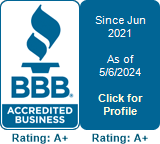It’s helpful to start by clarifying the day-to-day duties of a sober coach when exploring the support they can provide during recovery. A sober coach works closely with participants, offering guidance and assistance as they practice living a sober lifestyle.
A typical day might include helping a participant develop healthy routines, accompanying them to a therapy session, or simply providing a listening ear or motivational support whenever the need arises. Their objective is to cultivate a supportive presence, empowering participants to achieve and maintain sobriety.
When embarking on the sober recovery process, it’s important to recognize the distinct roles played by coaches, therapists, and sponsors. A sober coach is an accountability partner focused on present and future strategies for maintaining sobriety. They are pragmatic and action-orientated, often available outside of typical working hours, and provide real-time support.
Therapists, on the other hand, dive deeper into the psychological components of addiction, dealing with past traumas and mental health challenges. Sponsors, typically a part of traditional treatment programs, offer peer support based on their personal experience with addiction rather than professional training.
The sober coach’s role becomes particularly transformative when supporting life transitions. They champion their clients through major changes, such as starting a new job, moving to a new living environment, or rebuilding relationships. They may roleplay challenging scenarios or anticipate potential triggers that could jeopardize sobriety.
Sober coaches serve as a bridge between the structured world of rehab and the complexities of everyday life, helping participants navigate transitions and changes with confidence and resilience.











